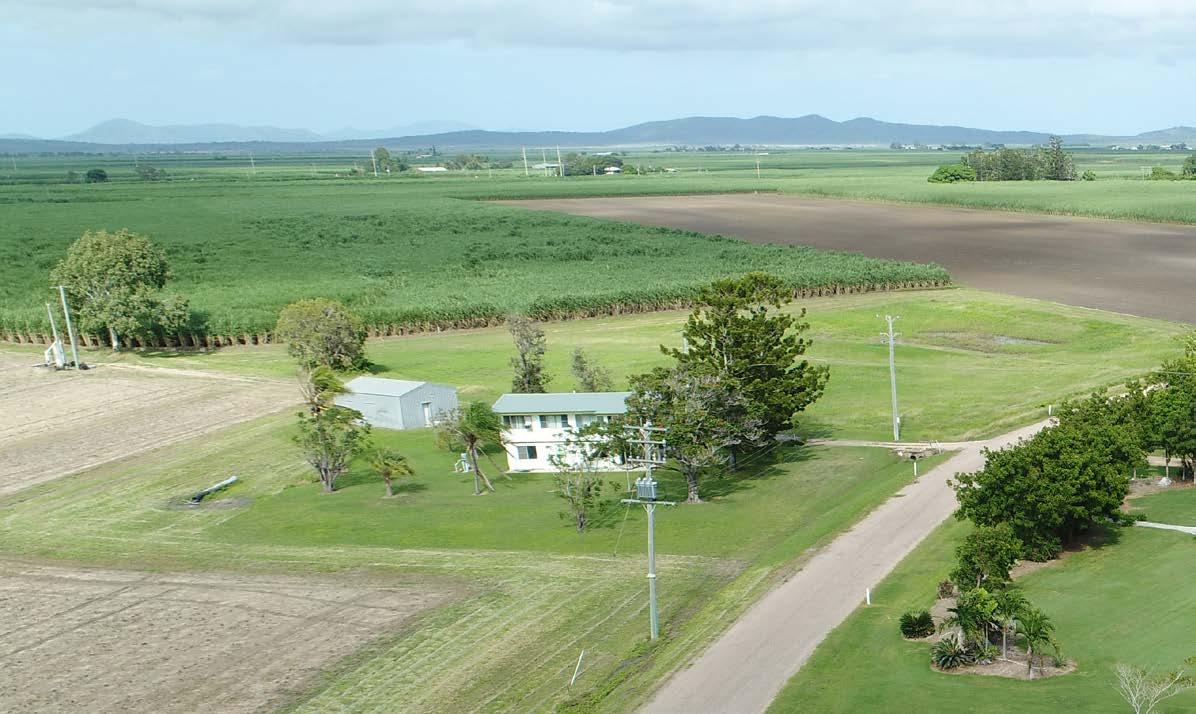
6 minute read
CEO comment
By Dan Galligan, CEO CANEGROWERS
WE MUST LOOK IN THE MIRROR TO SEE OUR FUTURE
Advertisement
During a recent radio interview, a reporter asked me to put into context whether the Queensland State Election really mattered. I thought it was a fair question.
Given the hype and hyperbole around political photo opportunities and statements during an election campaign, it can be difficult to cut through to meaningful substance but my answer to the reporter was straight forward - of course an election matters and when it is a State Election, it really, really matters.
When you look at all three tiers of government in Australia, it is the state level which has enormous influence over agriculture. The states have the policy levers on water and electricity pricing, land use planning policies, environmental (reef) regulations, resources allocation and planning. These are all issues CANEGROWERS canvassed heavily in our 8-point election platform which was in your October magazine. It was pleasing to see that CANEGROWERS was successful in getting a response to our issues which were published also in last month’s magazine. The response of the parties points to the importance they place on the voice of CANEGROWERS. Their published statements remain as a benchmark for the new State Government.
It was clear though that in final weeks of the campaign there was a lack of momentum. Perhaps brought about by the strategies harbouring uncertainties about the unique nature of this first fixed term, fixed date, huge pre-poll vote and dramatic influence of preferential voting.
There was also the growing feeling in agriculture that this was an opportunity lost by our politicians.
Gone are the days where comprehensive strategies built on the pillars of agriculture, mining and tourism were the cornerstone of most campaigns.
They have been replaced by policies, many it must be said are noteworthy and supportive of industry, but they don't appear to be stitched within a cohesive campaign-wide strategy .
We as industry, led by growers, must step up to fill that void. Over recent months I have used this magazine to float such ideas and talk of our emerging work on a new industry vision and roadmap to grow the industry.
It is a compelling story full of bright opportunities for cane growing in
Queensland and as we work with our supply chain partners, I know we can deliver it.
To do so we have to face the reality that the ‘old days’ of government leading this process are gone – it is up to us. Government will need to be part of our future, but we will lead because if we wait for them we may not see our part in that future.
BUILDING INDUSTRY KNOWLEDGE ON FARMING PRACTICE AND WATER QUALITY IN THE CENTRAL REGION
Sugarcane growers in the Mackay and Plane Creek areas of Queensland will have the opportunity to gain a clearer understanding of the complex relationship between farming systems and water quality, through a new project.
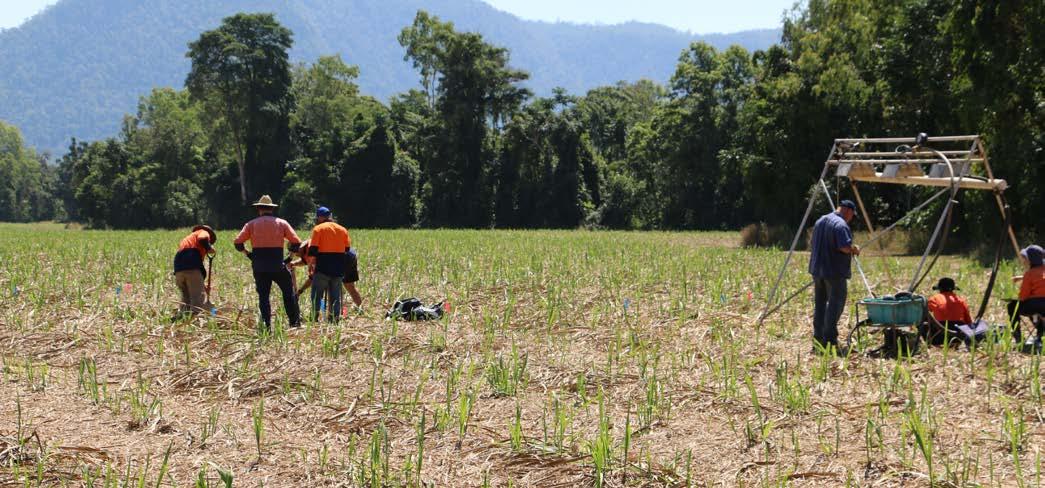
This new project is led by Sugar Research Australia (SRA) and is an addition to SRA’s work on the Cane to Creek series of projects - this new project bring this work to multiple sub-catchments in the central cane-growing region.
Regional Coordinator for the Central Region, Phil Ross, said that the MackayWhitsunday Cane to Creek project would work closely with productivity services organisations, Farmacist and growers on adaptive learning through demonstration sites.
“Through Cane to Creek in several other regions, SRA has worked hand-in-glove with growers to look at locally-specific issues that are relevant to them,” Mr Ross said.
“Growers are continually changing and improving practices to improve productivity, profitability, and sustainability. The industry also operates in a very complex system, which means we are always looking for new and practical information to help implement new practice. “Through this project, we will be working with growers to better understand these various factors in their own local conditions.
“This will lead to increased adoption of improved practices that meet the goals of improving productivity, profitability and sustainability, including nutrient and pesticide management strategies that contribute to achieving the dissolved inorganic nitrogen and pesticide load reduction targets for the region.”
Mr Ross said that along with the work already underway in other regions, this project will provide a platform for growers, researchers and advisors to agree on and test potential solutions to better match nitrogen and herbicide application to their specific requirements.
The Mackay-Whitsunday Cane to Creek project is funded by the partnership between the Australian Government’s Reef Trust and the Great Barrier Reef Foundation (GBRF), with support from SRA. It will run over the next three years and will leverage decision support tools such as the SRA SIX EASY STEPS Toolbox and the forthcoming DAF Queensland Pesticide Selection Tool.
In-field surveys of liquid imidacloprid applicators and sampling for imidacloprid concentration in the soil profile will also contribute to our understanding of this key chemical control for cane grubs.
“We will be working with growers on crop nutrition, pesticide stewardship and water quality science, as well as breaking down the barriers to bring science and industry to the same table,” Mr Ross said.
Pictured: In the field with a similar version of this project in the Herbert Region.
Gentle giant with big heart
The New South Wales sugar industry was in mourning last month following the tragic death of Pimlico cane farmer Wayne Rodgers on 3 October.
The 52-year-old was an active director on the board of the NSW Sugar Milling Co-operative and Chairman of the Agricultural Advisory Committee. He has also served on the Richmond River Cane Growers Association and NSW Cane Growers.
“It is with the heaviest of hearts we have to farewell one of our own. Wayne was a shining light in our industry and will be deeply missed,” Sunshine Sugar CEO and friend, Chris Connors said.
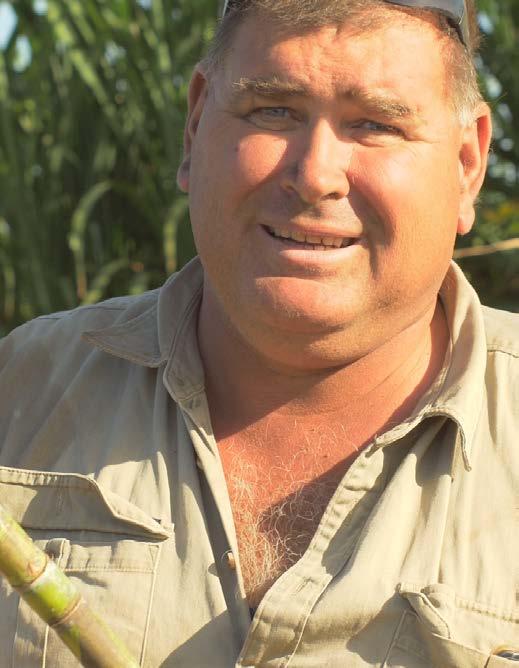
Wayne and his brother Craig along with their families have a long and distinguished association with the NSW sugar industry as growers, leaders and innovators.
"Wayne will be remembered as a gentle giant of the cane growing community. He was a big man with big ideas, big tractors, yet at the same time he was a thoughtful and caring person with the biggest of hearts.
“In the twelve years I have known him, since I came down from Queensland, he rang me nearly every week ‘just to make sure I hadn’t gone back over the border’.
"It was his way of making sure everything was okay. It reflects the considerate and positive attitude he had,” Mr Connors said.
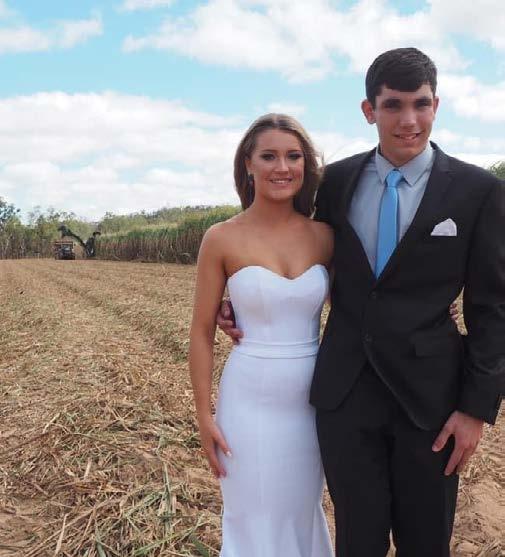
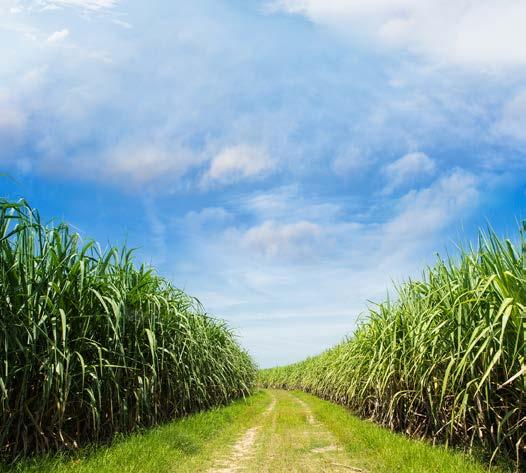
SUPERCHARGE YOUR NITROGEN
WITH
Pictured: Sebastian Di Salvo and Jenna Kerswell of St Stephen’s Catholic College. School formal held on August 29 2020. Sebastian has always loved the farm life and was thrilled that their formal photos could also capture the harvest in progress. Harvesting contractors Bonso Farming Babinda. Photo credit: Emma Bonso.
N-Protect is an eco-friendly nitrification inhibitor that promotes efficient plant nitrogen uptake and reduces the risk of leaching.
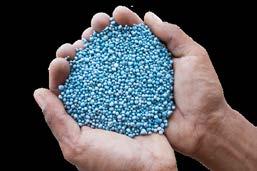
For your nearest Accredited N-Protect dealer
www.impactfertlisers.com.au 1800 884 488

